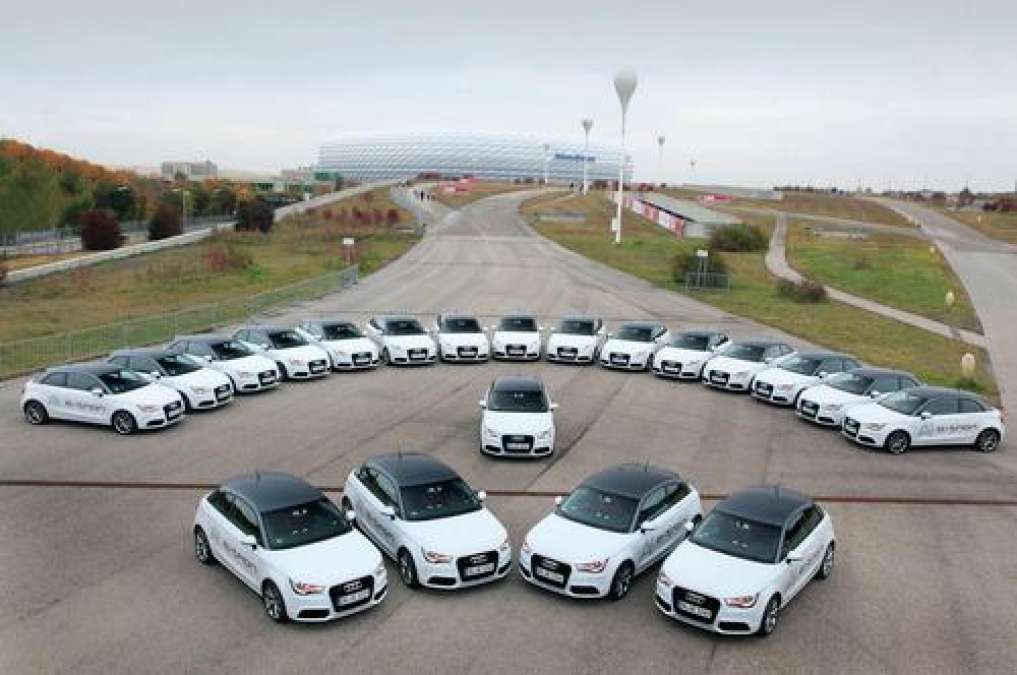The four-seat A1 e-tron was designed for daily driving in cities and metropolitan areas. It is not just an electric car; it also has an internal combustion engine (ICE). If the battery runs low on charge, the ICE recharges it as needed to boost the vehicle’s operating range to as much as 155 miles. Essentially the ICE is a range extender, much like the technology in a Chevy Volt. This compact electric car is a zero-emissions vehicle for the first 31 miles of a trip. The battery comprises a package of lithium-ion modules mounted in the floor assembly in front of the rear axle.
Twenty prototype A1 e-tron electric cars will be tested on the streets of Munich. This is part of a project initiated by several organizations which include Audi, the power company E.ON, the public utility Stadtwerke München (SWM), and the Technical University of Munich (TUM).
This test trial will allow each organization to make a determination as to how to integrate electric vehicles into everyday motoring life. E.ON and SWM are tasked with maintaining the charging infrastructure in the Munich metro area. A cool thing about the recharging stations, is that all offer power generated via renewable energy sources.
The German government is providing 10 million euros in the region for electric mobility projects and the A1 e-tron project is part of that. This project will address a number of issues, ranging from the power grid itself to data transfer between drivers, vehicles, and electric recharging stations. For example, the use of a smartphone as a driver’s main interface will be explored and tested.
"We want to use this fleet trial to learn more about our customers’ usage of electric cars, and their expectations in this regard. We are planning additional fleet endeavors in strategically important markets.” commented Franciscus van Meel, Head of Electric Mobility Strategy at Audi.
"We have set up not only public charging points near large cities but also innovative charging points at multi-storey car parks in city centres. Drivers simply insert their parking tickets to use the charging points and then pay for their electricity along with the parking fee," said Ruth Werhahn, Head of Electric-mobility at E.ON.
E.ON has already developed commercially viable charging solutions for numerous situations. The power company supplies charging stations open to the general public. At these stations, two electric cars can recharge their batteries at the same time via different charging points. In addition E.ON also offers charging solutions to private individuals, e.g. renewable 'green power' and a charging box for use with electric vehicles at home.
"We have been working with partners for quite some time on various projects concerning individual electric mobility. We want to generate enough green electricity by 2025 to supply the entire Munich metro area with electricity. Munich is thus on pace to become the world’s first city of a million-plus inhabitants to achieve this ambitious goal." said Dr. Florian Bieberbach, Commercial Director at SWM.
During the project, TUM is collecting and analyzing data on mobility, concentrating specifically on the situations in which people drive electric cars, the degree to which they drive them, and how this technology will influence the use of other means of transportation.
Please contact Adam Yamada-Hanff at – [email protected] – for comments, questions, or topics. You can also follow him on Twitter @AdamsAutoAdvice





